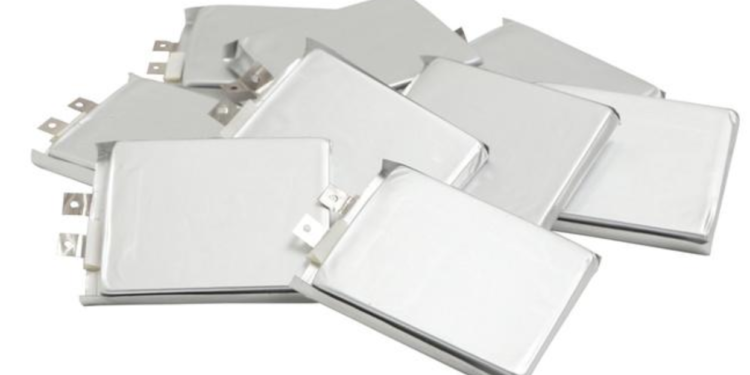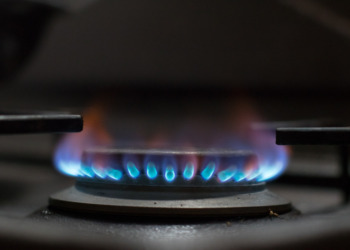Editor’s Note: PJP Eye Ltd. is an innovative startup, producing a new generation of organic Cambrian batteries. This article by Victoriya Shirota, one of the Managers at PJP Eye, provides useful information and insights to understand how this groundbreaking approach in battery technologies can help us achieve sustainability and limit climate change’s impact.
As you know, most devices like smartphones or laptops contain lithium-ion batteries. We use these devices every day without thinking about sustainability or climate change’s impact. However, batteries implemented in such devices are dangerous and toxic.
Only 5% of current lithium-ion batteries are recycled. The rest of it is simply buried in the landfill polluting soil and water. The lifespan of LIB used in iPhone for example is about 2-3 years so you can imagine how much the toxic waste is producing every year.

There are two reasons why lithium-ion batteries are so difficult to recycle: one is explosiveness, batteries are not safe during decomposing, they are likely to explode during the recycling process. The fire caused by LIB is almost impossible to eliminate by usual equipment and on top of that fire, caused by lithium-ion batteries produces toxic gases and heavy smoke.
Another reason is rare metal components. Cobalt, nickel, manganese are commonly used for LIB, and the extraction process is very expensive. Also, the rare metals mining process itself is very harmful to the environment. People, working in such mines are usually underpaid and work in dangerous conditions. In places
like the Democratic Republic of Congo, child labor is used to mine cobalt, commonly used in Electric Vehicles

PJP Eye carries a completely different approach. Our batteries contain carbon made from cotton instead of MNC. This technology allows our batteries to have a long lifespan of about 20 years and quick charging is 10 times faster than the current LIB. The longer battery lasts the less waste is produced as well as less CO2 is emitted. Also, a quick charge means low maintenance costs for businesses.
Cambrian batteries are disposable and recyclable. Cotton is organic nontoxic material, so carbon made from it is safe for humans and the environment. Taking a deeper approach, Cambrian battery technology means rejecting from rear metals mining and switch in the supply chain towards eco-friendly organic materials. This shift leads to the social and economic impact for the developing nations in a few ways.
RELATED ARTICLES: Large-Scale Lithium Batteries Are The Future Of The Energy Grid | Benefits of off the Grid Solar Power | Electric Vehicles Manufacturing: Mining in Western Greenland to Meet Demand | Battle of the Brands: Two Juggernauts of Luxury, BMW vs. Mercedes – How Sustainable?
First, environmental and human rights protection. The end or rear metals mining means the end of abuse of the local population and the end of pollution caused by mining. Second, Cambrian technology carries high potential so mass production of carbon batteries means access to electricity. Third, on the global scale, Cambrian technology brings new economic growth patterns, focusing on a grass-roots level, local community self-empowerment, end of dependency, and benefiting small businesses over big transnationals.
PJP Eye is not just a startup to provides low CO2 emission products. We create a new ecosystem based on sustainable development for all nations. That’s why our company was selected for COP 26 pitch contest as a future game-changer. (find out more here https://bit.ly/3DJez2V)
PJP Eye successfully developed Cambrian battery technology from the patented idea to the mass production of the battery cells. So, our team could implement Cambrian batteries in various applications: electric carts, drones, portable power storage 1kw, power bank 3000mah, e-scooters, e-bikes. As for e-mobility sales, we work with Maruishi Cycle, one of the oldest bicycle makers in Japan. Maruishi is going to start to sell bicycles with our batteries by the end of this year. Also, we are intending to sell 150 units of our e-scooters for the share mobility service in Japan.
Our business model is based on the B2B scheme. However, we focus on producing battery cells with specifically designed modules for each application based on our client’s needs. In this case, our customers have no need to hire additional outsourcing technical services.
In the future, we intend to fill the niche in the renewable energy generation sector by implementing our batteries in solar and wind generators. At the moment, our team could sign the partnership agreement with Riamwind Co. based in Kyushu, a new generation of wind turbine manufacturers. Riamwind technology makes turbines 2,5-5 times more efficient than current ones and special lenses can make turbines silent, safe from bird strikes.
Editor’s Note: The opinions expressed here by Impakter.com columnists are their own, not those of Impakter.com










